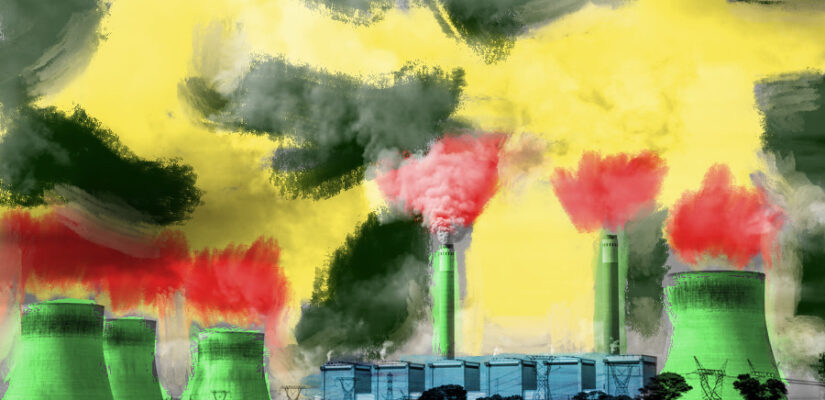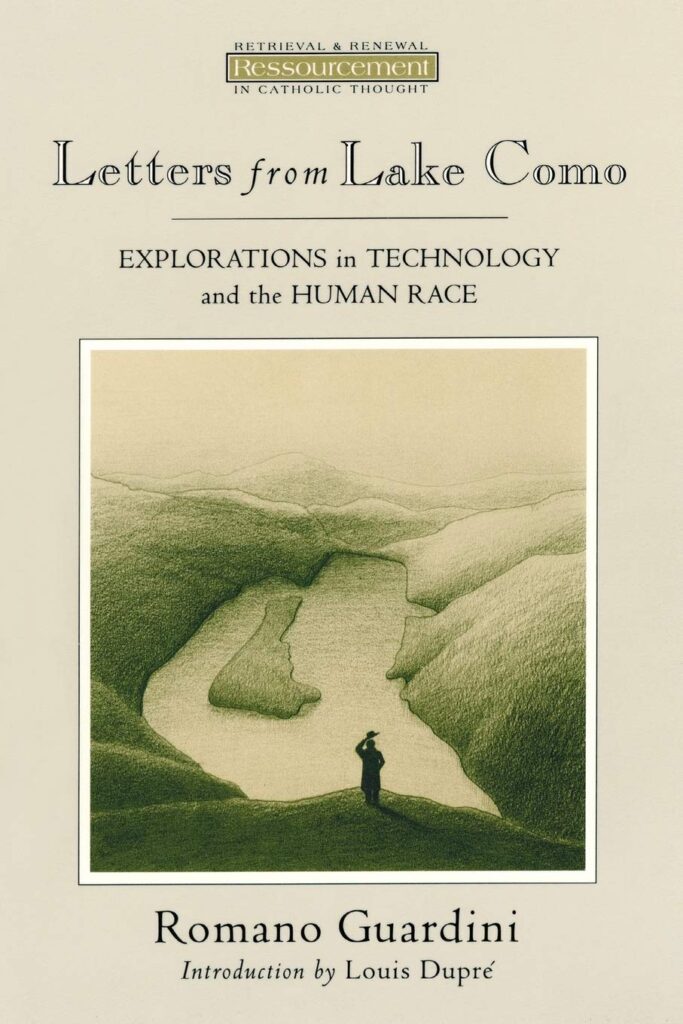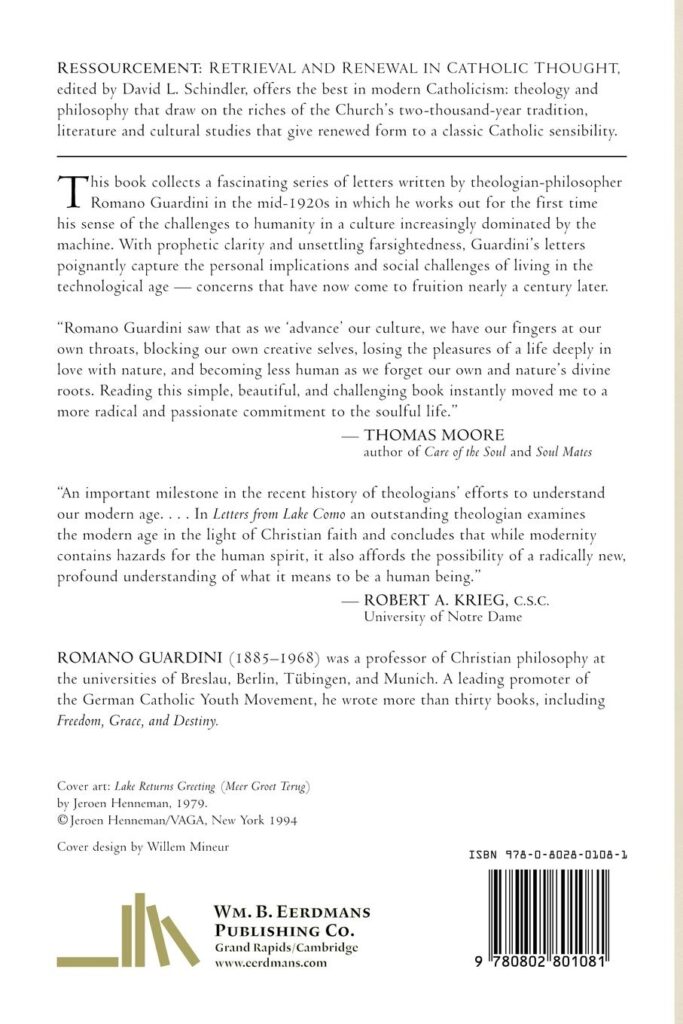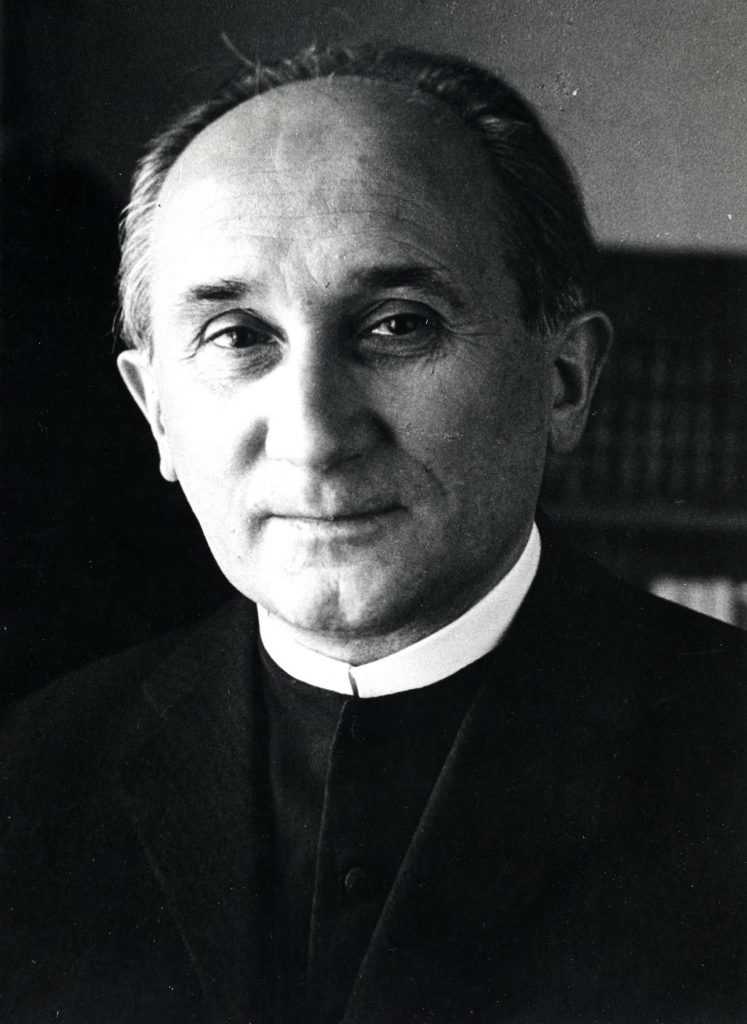
Explorations in Technology and the Human Race | (dot)philosophy

(dot)philosophy | A space by GIACOMO MARIA ARRIGO
Letters from Lake Como. Explorations in Technology and the Human Race by Romano Guardini was published in 1926. It consists in a set of 9 letters on the topic of technology and the transformations occurring in the human life.


Below some quotations from the book:
“The world of natural humanity, of nature in which humanity dwells, was perishing.”
“The sphere in which we live is becoming more and more artificial, less and less human, more and more – I cannot help saying it – barbarian.”
“What the concept is for knowledge of things, mechanisms, instruments, and machines are for practical action. What concepts do for knowledge – i.e., grasp many things, not in their vitality, but only by means of posited signs that rightly indicate common features – machines do for action. Machines are steel concepts. They lay hold of many things in such a way as to disregard their individual features and to treat them as though they were all the same. Mechanical processes have the same character as conceptual thinking. Both control things by taking them out of a special living relation to what is individual and creating an artificial order into which they all, more or less, fit.”
“There are two ways of knowing. The one sinks into a thing and its context. The aim is to penetrate, to move within, to live with. The other, however, unpacks, tears apart, arranges in compartments, takes over and rules. […] The latter began to emerge already during the Renaissance but has really come into its own very recently. This knowledge does not inspect; it analyzes. It does not construct a picture of the world, but a formula. Its desire is to achieve power so as to bring force to bear on things, a law that can be formulated rationally. Here we have the basis and character of its dominion: compulsion, arbitrary compulsion devoid of all respect.”
“Now, in accordance with the formula discovered, energies and masses are put to use in the proportions desired. They are detached from their organic links and arbitrarily pressed into service. The new desire for mastery does not in any sense follow natural courses or observe natural proportions. Indeed, it treats these with complete indifference. The new mastery posits its aims arbitrarily on rational grounds”
“By their nature the new knowledge and creativity are a knowing of possibilities and a mastery and compulsion according to capriciously set goals.”
“Machines are an iron formula that directs the material to the desired end.”
“The older culture, then, can only wither away. ”
“Nothing commands respect, and nothing is inviolable. We lay hands on everything. All philosophical problems, all art, all historical events, all personalities, even down to the last hidden thing in recollection, letter, or confession -all are up for grabs. How sickening it is! How vulgar life has become in every sphere, even in religion, for despite the profound equality of the children of God and the fact that all things are theirs, they are unable to prevent the surrender of all arcana and the irruption of clamor and bustle into the quietness that alone is essentially creative. How we long for an arcane discipline that will protect what is sacred from the marketplace, including the marketplace within.”
“Now freed from every organic link, the will can set its own goals, and by controlling natural forces rationally it can make the execution of these goals compulsory. Living people fall victim to this ineluctability. They are given up to the caprice of their own goals, which have no organic relation.
What takes place here is not human, at least if we measure the human by the human beings who lived before us. […] “You see everywhere how piece after piece is eroded, standard after standard is broken, one creation or order is swallowed up in another.”
“Here in Italy we can see the incursion everywhere. It must be even harder in the Far East, in Japan, in the South Seas. In these places undoubtedly things of infinite value have perished in the last decades. We see the steady overthrow of the old world.”

“It often seems to me that the period from 1830 to 1870 is the watershed. All things before that, however different, belong together. They rest on a similar basic attitude, share the same human standard, are integrated into nature and its proportions. What has come since seems to be governed by a different basic attitude, by the desire to set goals independently of organic connections and on the basis of rationally emerging forces that are mechanically put in the service of this desire and its goals.”
“The development of technology is primarily an inner human process. ”
“On the older plane the battle for living culture has been lost, and we feel the profound helplessness of those who are old. The battle must now be joined on a new plane. Totally technical events and unleashed forces can be mastered only by a new human attitude that is a match for them. We must put mind, spirit, and freedom to work afresh. But we must relate this new effort to the new events, the new manner and style and inner orientation.”
“We must not oppose what is new and try to preserve a beautiful world that is inevitably perishing. Nor should we try to build a new world of the creative imagination that will show none of the damage of what is actually evolving. Rather, we must transform what is coming to be.”
“A new humanity must emerge of more profound intelligence, new freedom, new inwardness, new form, new ability to give form.”
“What we need is not less technology but more. Or, more accurately, we need stronger, more considered, more human technology. We need more science, but it must be more intellectual and designed; we need more economic and political energy, but it must be more mature and responsible, able to see the details in the whole contexts to which it belongs.”
“We must first say yes to our age. We cannot solve the problem by retreating or simply seeking to alter or improve. Only a new initiative can bring a solution. It has to be possible to tread the path of developing awareness until we achieve an inner standard, not one imposed by external limitations.
“The most gigantic possibility is still ahead of us. This has now manifested itself, just as tremendous energy is released by the splitting of the atom. We have here a symbol of what I have in mind. In the inner human world an analogous deep force has to emerge that will give a new freedom from the world and a very profound way of seeing and relating to it. Then the event might well take place that was not possible on the older level. We reach here a new level.”
“I believe, however, that a new image of man is in process of formation, a different one from that of antiquity or that of the Middle Ages, and especially from that of humanism, classicism, or romanticism.”
“A yearning is there for the inward, for quiet, for leaving the mad rush and refocusing. Yet this refocusing will not negate other being and action but will take place within it. We sense possibilities of concentration and inwardness in the everyday, in life as it is. I believe that technology, the economy, and politics need such quiet and inner fervor if they are to do their respective jobs.”
“Our age is so uncertain, skeptical, seeking, and homeless that there are not a few today, I believe, who stand directly before God. Those who stand in the world have need of a stance in themselves and in something deeper than themselves from which to come to grips with the world again. And indeed a wave is moving out from God and reaching our innermost limit beyond which is the other. It is possible that people may talk together and act and spin out their destinies without a single mention of God, and yet be full of him. In this context the question that faces us will be decided. Will we come to God from the depths of our being, link ourselves to him, and in his freedom and power master chaos in this coming age? Will there be people who place themselves totally at God’s disposal and alone with and before him make the true decisions? I detect all of these forces at work. A powerful upsurging, an inner self-opening, an emergence of form on every hand.”